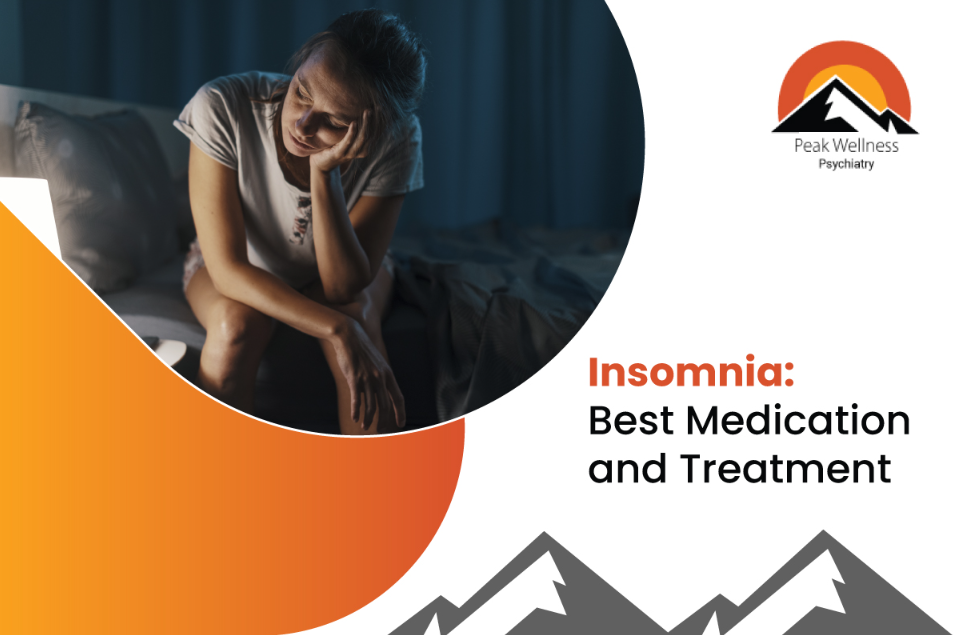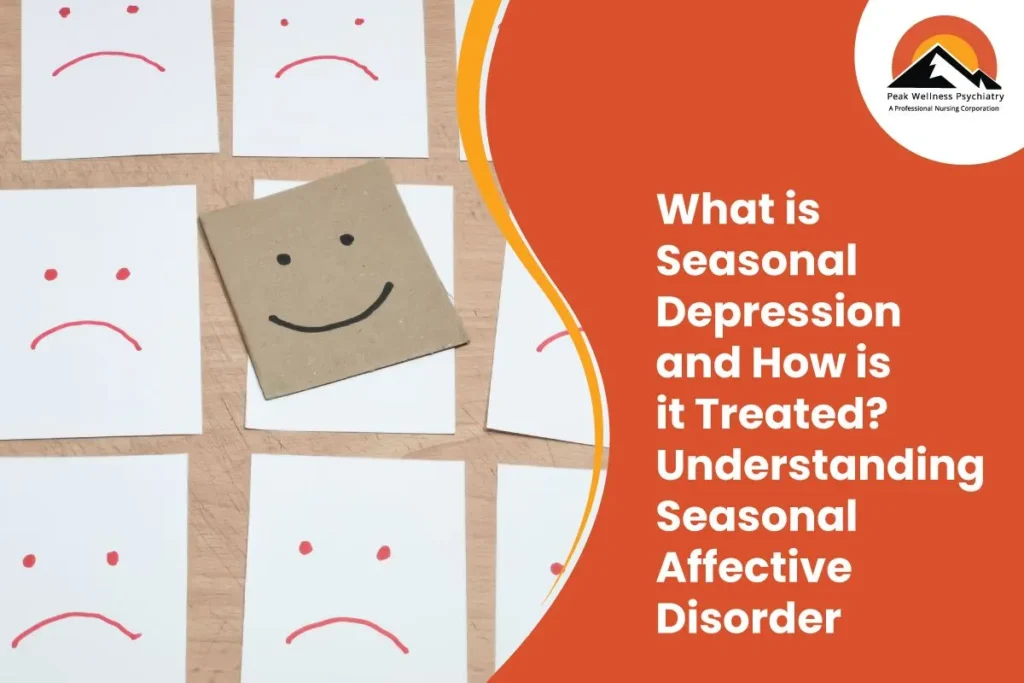What Is Insomnia?
Insomnia causes problems falling asleep, staying asleep, and getting adequate sleep. Some people with insomnia find it difficult to fall asleep at night or wake up frequently during the night. They may also wake up too early in the morning and be unable to return to sleep.
Various factors can cause insomnia, such as stress, anxiety, depression, medical conditions, and medication side effects. Due to this, you may feel tired, irritable, and have trouble concentrating. Medications and lifestyle changes are among the recommended treatments for insomnia.
Symptoms of Insomnia
The symptoms can vary from person to person, but common symptoms include the following:
- Difficulty falling asleep. This may involve lying awake for long periods before falling asleep or waking up repeatedly throughout the night.
- Waking up frequently during the night. Many people with insomnia find it difficult to fall asleep after waking up multiple times.
- Getting up too early. People with insomnia may wake up early and have trouble returning to sleep.
- Daytime tiredness. The effects of insomnia can include fatigue and low energy during the day.
- Difficulty concentrating. Insomnia can affect a person’s ability to concentrate and pay attention during the day.
- Mood changes. Insomnia can lead to irritability, anxiety, and depression.
- Other physical symptoms. Insomnia can cause headaches, dry mouth, and difficulty falling asleep again if awakened during the night.
What Are the Complications of Insomnia?
Insomnia can have several negative consequences if left untreated. Some of the complications of insomnia include:
- Decreased productivity. Having insomnia can affect a person’s ability to concentrate and make decisions. This reduces their productivity at work or at school.
- Increased risk of accidents. Insomnia can affect a person’s reaction time and judgment, increasing the risk of accidents.
- Poor physical health. Physical health problems, such as high blood pressure, heart disease, and diabetes, have been linked to insomnia.
- Poor mental health. People with long-term insomnia can develop anxiety and depression.
- Relationship problems. Insomnia can cause irritability and difficulty communicating with others. This can negatively affect personal relationships among families and peers.
- Substance abuse. People with insomnia may abuse alcohol or other substances to improve their sleep.
- Decreased quality of life. Having insomnia can cause feelings of frustration and distress, which negatively affect the quality of a person’s life.
Treating Insomnia
Insomnia often subsides on its own after a short period. In the case of chronic insomnia (long-term), a healthcare provider may suggest the following:
Cognitive Behavioral Therapy for Insomnia (CBT-I)
Sleep symptoms, including awakenings and sleep latency, are consistently improved with CBT-I. Short-term benefits are similar to medication, but CBT-I tends to have lasting benefits even 36 months after treatment.
CBT-I does not carry the risks associated with sleep medications, which makes it a first-line treatment for insomnia. Using a CBT-I approach helps people with insomnia identify their anxieties and replace their habits with healthier ones. This type of therapy may also include one or more of the following components:
- Universal Sleep hygiene. Healthy sleep patterns and lifestyle habits are essential for treating insomnia symptoms. Generally, universal sleep hygiene focuses on changing the environment and lifestyle to improve sleep. These include:
- Keeping regular hours of bedtime and arousal
- Avoiding excessive caffeine
- Not eating heavy meals before bedtime
- Getting adequate exercise
Also, read on What is Sleep Hygiene?
- Stimulus control therapy. A stimulus control therapy for insomnia helps people change their sleep behaviors and thoughts. The goal of stimulus control therapy is to associate the bed and bedroom with sleep and to eliminate behaviors that interfere with sleep.
In stimulus control therapy, a person follows the rules designed to improve sleep habits. These rules may include the following:
- Going to bed only when you are tired.
- Getting out of bed if you are unable to fall asleep within 20-30 minutes
- Only use the bed for sleep and sexual activity
- Avoiding screens (such as televisions, computers, and phones) before bedtime
- Avoiding naps during the day
Stimulus control therapy can improve sleep patterns and reduce insomnia symptoms.
- Sleep restriction therapy. Sleep restriction therapy involves only spending time in bed when you are sleeping. This therapy aims to increase sleep efficiency, which is the time spent sleeping. Sleep restriction therapy gradually adjusts a person’s sleep schedule so that they are only in bed for as long as they can sleep.
- Relaxation Therapy and Biofeedback. People with insomnia can benefit from a handful of relaxation techniques. A few of these include breathing exercises, muscle relaxation, and meditation. You can also achieve better sleep through biofeedback, which helps you control various bodily functions based on your blood pressure, breathing, and heart rate.
Also, read Behavioral Interventions for Insomnia: Theory and Practice
Pharmacological Treatment of Insomnia
Consider consulting your doctor or another credentialed physician before taking any insomnia medication. As a last resort, pharmacological interventions are used if cognitive behavioral therapies do not improve sleep.
The best drug for insomnia varies from person to person. However, there are several types of medications for insomnia, including:
- Benzodiazepines. Benzodiazepines belong to a drug class known as psychoactive drugs. In all, five BZDs have been approved by the US Food and Drug Administration for treating insomnia. Most people tolerate benzodiazepines well, but they can cause side effects such as drowsiness and dizziness and impair memory and concentration. They are typically prescribed for short-term use.
- Nonbenzodiazepines. A new class of drugs, Z drugs, were developed to provide the same benefits as BZDs, but without the potential adverse side effects or abuse. Despite this, Z drugs (like Ambien) also require prescriptions. The DEA has classified them in Schedule IV of the Controlled Substances Act.
- Orexin receptor antagonist. Drugs that block orexin receptors work by preventing orexin from playing its role in regulating wakefulness and arousal. Treatments for insomnia and sleep disorders often involve orexin receptor antagonists.
- Melatonin agonist. A melatonin agonist activates the melatonin receptors in the body, which regulate sleep-wake cycles. A melatonin agonist may treat insomnia and other sleep disorders. Although melatonin agonists are generally well tolerated, they can cause dizziness, drowsiness, and nausea. It is important to follow instructions when taking medication and to report side effects if any occur.
- Over-the-counter medications. Some over-the-counter drugs, such as sedating antihistamines, have sedating properties. These drugs are also effective for treating insomnia. Melatonin supplements can help you balance your body’s melatonin levels.
Take Control of Your Insomnia
Insomnia can be treated in several ways, depending on the individual’s needs and preferences. Cognitive behavioral therapy for insomnia (CBT-I) may improve sleep patterns for some people. Others may benefit from medications or relaxation techniques.
Finding the right treatment approach requires collaboration with a healthcare provider. A healthcare provider can help to assess the severity of a person’s insomnia and recommend a treatment plan.
As an integrative and holistic mental health practice, Peak Wellness Psychiatry provides Integrative Psychiatric Nurse Practitioner Care that combines medication and lifestyle modifications to meet individual mental health needs. We can also help treat various mental health conditions besides prescribing online medications for insomnia. We customize our healing methods based on your unique situation and preferences!
Visit the link or call (888) 909-8676 for more information. We offer telepsychiatry appointments within four days through online self-scheduling!




